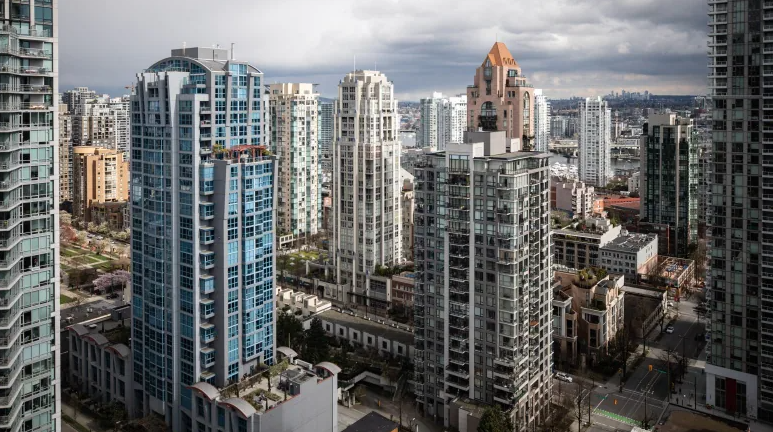
How Do Stratas Work?
How Do Stratas Work? A Guide to Strata Living in British Columbia
Navigating the world of real estate can be likened to learning a new language, especially in places with unique property management systems. In British Columbia (BC), one such term you might encounter is “strata.” Let’s dive in and understand what it means and how it operates.
1. What is a Strata?
At its core, a strata is a system of property ownership where individual owners have their private units but also share ownership of common spaces. Think of the garden in your complex, the roof above, elevators, and hallways. While you own your specific unit, these common areas belong to all unit owners.
2. Key Components of Strata Living
Strata Corporation: Essentially, this is the collective body comprising all individual unit owners. They jointly own the common property. Think of this corporation as a company, and the individual unit owners as its shareholders. This corporation is registered with a specific strata plan number, giving it a unique identity. Just like any company, it has its own bank accounts, a set of bylaws governing its operations, and rules every owner needs to follow.
Strata Council: Under this big umbrella, there’s a team ensuring the day-to-day operations run seamlessly – meet the Strata Council. This is a group of dedicated unit owners elected by their peers. They’re the hands-on team overseeing the daily affairs of the building and the strata corporation.
Property Manager: Employed by the strata corporation, the property manager liaises mainly with the strata council but answers to the corporation as a whole. They handle various duties, ensuring the property runs smoothly.
Operations Coordinator: This person assists the property manager, acting as the primary contact for residents, owners, and others connected to the strata corporation. They manage various administrative tasks, from updating resident information to handling maintenance requests.
Strata Administration Experts: They prepare essential documents for the strata corporation under the guidance of the Property Manager. These experts ensure accurate and prompt document preparation, be it meeting notices, minutes, or council manuals.
Individual Owners: Owners have rights and responsibilities based on the Strata Property Act. They can elect council members, decide on bylaws, and more. They have a voice and a vote in significant matters.
Residents/Tenants: Residents and tenants enjoy almost the same rights as owners. While they can’t vote or serve on the council, they must abide by the strata’s bylaws, rules, and regulations.
3. Meetings for Decision Making
Like in any organized system, meetings are crucial for decision-making. Every year, an Annual General Meeting (AGM) is held, gathering all unit owners. Here, pivotal decisions that affect everyone are made and require collective voting. Picture this as the annual general assembly of a company where major shifts and decisions are tabled.
But what if something pressing comes up in the middle of the year? That’s when a Special General Meeting (SGM) might be called, addressing issues that can’t wait till the next AGM.
In addition to these large-scale meetings, the Strata Council also convenes regularly (perhaps monthly or every few months) to discuss nitty-gritty details and ensure the smooth running of the strata.
Annual General Meeting (AGM): Held yearly, it gathers all unit owners to make pivotal decisions.
Special General Meeting (SGM): When urgent matters arise mid-year, an SGM is convened.
Regular Strata Council Meetings: The council meets frequently to discuss finer details and ensure smooth operations.
4. Common Property Ownership
At the core of strata properties is the concept of common property ownership. Imagine living in a complex that has multiple units. While you own your individual unit, there are shared areas that belong to everyone. Think about the garden you pass by every morning, the roof shielding all units from rain, the elevators you take, and the hallways you stroll through. These areas are all commonly owned by everyone who owns a unit in the complex.
These shared spaces need maintenance. They need to be cleaned, repaired, and sometimes renovated. This is where the idea of strata governance comes in, to ensure the smooth functioning of these common areas and regulate the activities within the complex.
When considering strata living in BC, it’s crucial to understand what part of the property you actually own. Typically, your sole ownership extends from roughly the middle of the walls inward. Everything outside of this, including areas you might assume are yours like patios and decks, is considered common property, or limited common property. This common property is overseen by the strata corporation, which includes you as a member.
5. Unit Entitlement: Fair Share for All
Now, with all these common areas and shared responsibilities, how do we ensure everyone pays their fair share for maintenance and other costs?
Enter the concept of Unit Entitlement. This is a way to divvy up responsibilities, both financially and for insurance purposes. If you’re thinking, “Why not just divide everything equally?” – well, it’s not always that simple. Units within a complex can vary in size, features, and amenities.
Consider a complex with 20 units, where ten are 1-bedroom suites and the remaining ten are 2-bedrooms. It wouldn’t be fair to split costs equally, given the differences in size and potential usage of common spaces. Therefore, a specific unit entitlement or percentage is assigned to each unit. In our example, the 1-bedroom units might have an entitlement of 0.8/20, while the 2-bedroom units could be given a 1.2/20 entitlement. This ensures everyone contributes fairly based on their ‘ownable’ space and its value.
Stratas, with their unique structure and governance, offer a fair and organized way to manage multi-unit properties. For potential buyers or new unit owners, understanding how stratas work is key to a harmonious living experience. Whether it’s through shared responsibilities or individual entitlements, a strata ensures everyone has a stake in the community and its well-being. So, the next time you’re looking at properties, you’ll know exactly what to expect when considering a strata property in BC.
Not Legal Advice - The material provided on the StrataPress website is for general information purposes only. It is not intended to provide legal advice or opinions of any kind and may not be used for professional or commercial purposes. No one should act, or refrain from acting, based solely upon the materials provided on this website, any hypertext links or other general information without first seeking appropriate legal or other professional advice. These materials may have no evidentiary value and should be checked against official sources before they are used for professional or commercial purposes. Your use of these materials is at your own risk.






